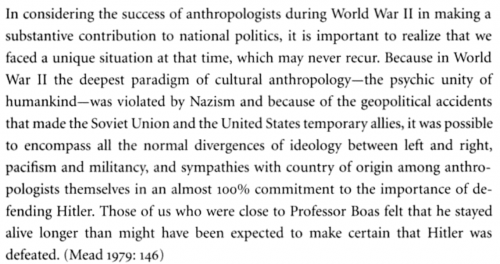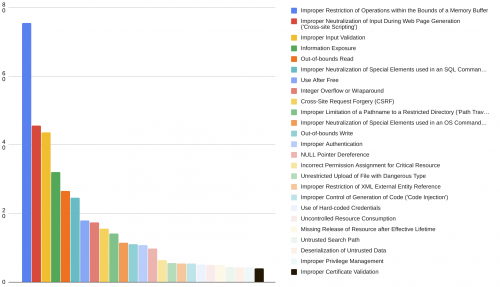When I was a child, visiting an anthropology conference, Margaret Mead had me sit on her lap. My recollection is vague yet always is flavored by my mother telling me Mead asked me questions and wanted to know how I would evolve with two anthropologists as parents.
If Mead were alive today I’d maybe disappoint her to admit I strayed from anthropology into being a student of history instead. And I might defend my choice by telling her it helped me better understand stories she told such as this one:

It surely sounds good for anthropologists to say they were engaged in a form of historic exceptionalism by serving to defeat fascism in the 1940s. However, historians probably could disagree with that framing and say an eternally valid moral choice was being made more than an historic one.
To be fair, she earlier had famously said:
Children must be taught how to think, not what to think. They must be taught that many ways are open to them.

The question then seems to be whether we can or would want to restrict “ways” for people (even anthropologists, or sons of anthropologists) by teaching how to think.
Who reasonably would predict (based on history) where a child will lead in the future? And I guess that was the point of Mead having me sit on her lap for questioning.
